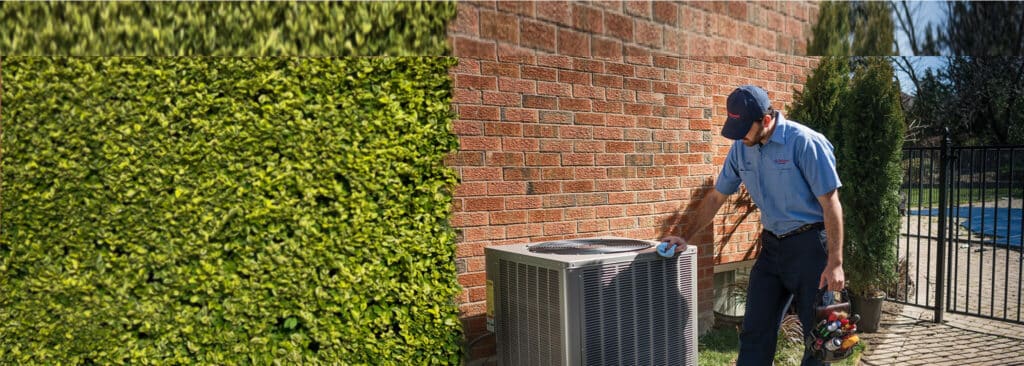Of the handful of systems you depend on most in your home or office, your AC is likely one of the most vital to keeping your space comfortable, comfortable and healthy. It’s a good idea to ensure that your AC unit is running at peak performance. In many cases, you can accomplish this by keeping your heating and cooling (HVAC) maintenance schedule on track. This includes regularly cleaning air filters to make sure the entire system is running as efficiently as possible; keeping debris to a minimum in your AC unit; and cleaning around the unit to remove anything that could block air flow.
However, sometimes it just makes more sense to invest in new technology. For one thing, updated AC units are far more energy efficient than older models.
1. If You’re Having to Put Money into Repairs More than Once a Cooling Season
If any or all of these issues crop up, it’s likely time to consider installing a new AC unit:
- If you’re AC is constantly breaking down
- If important components (like the compressor or the condenser) are failing
- If it’s not cooling your home or office the way you’d like it to
- If it is operating loudly
Our technical experts will give you a balanced assessment of the condition of your AC unit and whether it’ll see you through another season. If replacement is recommended, then a consultation with one of our Home Comfort Advisors will provide you with the right options for your home.
2. If Your AC Unit Is Older
Antiquated units are not only less efficient than today’s models; they may be more likely to break down, due to the years of use on the components.
3. If Your Energy Bills Are Higher Than They Should Be
Though purchasing new HVAC equipment may seem like a big investment, a new AC unit, when compared to an non- ENERGY STAR® model, can pay dividends in energy savings (upwards of 20%, according to the Government of Canada1) and will also help to curb the toll that HVAC use can take on the environment. Also, be sure to check our Rebates page to see if there are any current rebates for AC equipment in your area.
Need a new air conditioner, furnace or other HVAC component but not in the position to pay in full for it? Consider renting! That way, you won’t have to worry about upfront costs, ongoing maintenance or expensive repairs.
4. If Your AC Is Either Over or Undersized for Your Space
According to the Government of Canada, “oversizing is clearly detrimental to comfort, cost of operation and equipment performance.”2 An oversized AC has the potential to lower your house or office temperature too quickly without removing excess humidity, which can make your space cool and damp, and in turn, can promote mould growth, stains on the walls, ceiling and floors, and musty odours. In contrast, undersized AC systems will struggle to keep you cool on the hottest days.
8%
Amount of energy an ENERGY STAR®–certified central-air AC saves, on average, compared to standard models.
(Source: Government of Canada, Natural Resources)
If you’re curious about the best AC option for your particular cooling needs, visit our Ultimate Air Conditioning Guide and then Call on Reliance®. Whether you’re repairing or replacing, we’ve got the knowledge, tools and resources to help!
1Government of Canada, Mar.6, 2019. “Central Air Conditioners.”
2Government of Canada, Oct.24, 2018. “Keeping the Heat In—Chapter 9: Operating your house.”








